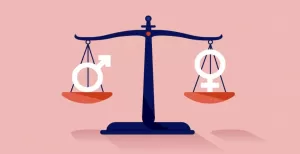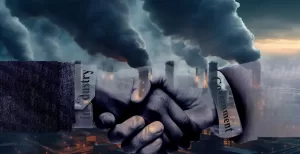A Global Plastics Treaty, which is currently being negotiated under the aegis of the United Nations Environment Programme, could hold a solution to the plastic pollution crisis. The second of five meetings of the Intergovernmental Negotiating Committees on the terms of the treaty and its implementation began in Paris on May 29 and will continue till June 2.
The treaty aims to end plastic pollution across its entire lifespan: from the extraction of fossil fuels to refining for petrochemicals, plastics production, consumption, waste trade and disposal. Thus far, plastics have been approached as a littering problem to be managed after they are used.
This has been the case despite resolution 5/14 adopted in the United Nations Environment Assembly in March last year that finally acknowledged the role of upstream industries as a source of the plastic pollution crises.
Should a treaty be framed along the lines of this resolution, it will lead to a significant reduction and eventual phasing out of certain kinds of plastics.
India and the plastics treaty
India boasts of having spearheaded a resolution on single-use plastics at the United Nations Environment Assembly 5 in 2019. But in 2022, as world leaders were negotiating the binding nature of the Global Plastics Treaty, India argued for one that is voluntary.
During the first session of the Intergovernmental Negotiating Committee, too, India aligned with countries such as Saudi Arabia and China that were pushing for consensus rather than majority voting as a way of decision making during the Treaty negotiations. Besides, India did not even send a delegation to the first session of the Intergovernmental Negotiating Committee and instead chose to participate online.
India also chose not to make a submission on the potential elements that will be negotiated during the second negotiation meeting, including the objectives, core obligations, control measures and voluntary approaches.
In doing so, India missed the opportunity to influence this important instrument that will regulate the production and consumption of plastics.
India’s contradictory interests
The aims of the treaty could also result in a cap on petrochemical production, especially of polymers and toxic additives. But this comes at a time when both the government and industry are bullish on petrochemicals in India.
The ruling government hopes to see the country as a regional hub for petrochemical production with an eye on foreign exchange to be earned from exports. It thus appears that current petrochemical policy in India and the stated aim of the Global Plastics Treaty operate at cross purposes.
In December, Minister of Petroleum and Natural Gas Hardeep Singh Puri said India’s petrochemical market has immense growth potential. “[The] petrochemical market size is currently in India about $190 billion, whereas the per capita consumption of petrochemical segments is significantly lower, compared to that in developed economies,” Puri had said. “And this gap offers substantial space for demand growth and investment opportunities.”
More recently, at the Asia Petrochemical Industry Conference on May 20, Chemicals and Fertilisers minister Mansukh Mandaviya said, “India is poised to be the new destination of petrochemicals, globally”.
Speaking at the same conference, a senior executive of Reliance Industries Limited suggested that chemicals will contribute to 70% of the new oil demand growth in the future. Further, in the Indian chemical industry, alkali chemicals have the largest share with approximately 71.9% in the total production from April to July 2021 and production of polymers accounts for approximately 59% of the total production of basic key petrochemicals in 2019.
One of the key alkali chemicals produced is caustic soda, an important ingredient for the production of the extremely toxic polyvinyl chloride, or PVC – a plastic polymer.
Billions at stake
According to Puri, petrochemicals are expected to bring in investments worth more than $87 billion into India. In 2021, the Federation of Indian Chambers of Commerce and Industry had estimated the investment at the same amount that would be invested across eight projects, including the $40 billion Ratnagiri Refinery and Petrochemicals Limited in coastal Maharashtra.
Until 2021, there were 11 petrochemical projects with a total investment of $17.1 billion. The planned investment will be over five times the current investment.
Outsourcing production
This corroborates with data provided in International Energy Agency’s report titled “Future of Petrochemicals”, which estimates that by 2050, the production of primary chemicals will reduce in Europe, plateau in North America and will increase in West Asia with the bulk of the production taking place in the Asia Pacific region.
According to the International Energy Agency, primary chemicals include ethylene, propylene, benzene, toluene, mixed xylenes, ammonia and methanol that are used for the production of key plastics, synthetic fibres among others.
While the Asia Pacific region does have some of the bigger markets due to their large populations, it is also true that the per capita consumption of petrochemicals is higher in Europe and North America. Thus the Asia Pacific region, with India having the lion’s share of petrochemical production, will welcome this industry in the name of development and end up holding and dealing with toxicity on behalf of the developed world.
Ninety-nine per cent of petrochemicals world over are produced from fossil fuels. Globally, the petrochemical industry accounts for 18% of all industrial-sector carbon dioxide emissions, or 5% of total combustion-related carbon dioxide emissions.
Plastics, across their full life span, have an alarmingly high carbon footprint that is expected to hit the equivalent of annual emissions from nearly 1,640 coal-fired power plants) by 2050.
In terms of technology, 80% of the refineries are already integrated with refining crude oil for energy and petrochemicals. Another technological innovation that has been propagated recently is that of “green” refineries. By this it is largely understood that part of the energy used to run these refineries will come from renewable sources. This is nothing but an eye wash as anything that burns fossil fuels or uses them as feedstock cannot be “green”.
Big players stand to gain
It is not surprising that there are a handful of big players who stand to gain. The petrochemical industry in India is oligopolistic in nature. There are 11 crude oil refineries and about 40 petrochemical and additives producers in the immediate downstream.
Of the 11, there are three large players – Reliance Industries Limited, Indian Petrochemicals Corporation Ltd, and Gas Authority of India Ltd – dominating the landscape. Of these three, Reliance alone accounts for 70% of petrochemical polymer production in the country and has a monopoly in the production of some polymers like low density polyethylene – LDPE. Therefore, should there be a significant reduction or cap in petrochemical production, these companies will take the biggest hit.
In the case of plastic consumption, India has made some weak attempts at regulating their use. In August 2019, there was a call for a national movement against single-use plastics. The Swachh Bharat Mission 2.0 inaugurated in October 2021 also focussed on waste management, including plastic.
Finally, on July 1 last year, India announced a nationwide ban on certain single-use plastics. By the industry’s own admission. the ban targets only 2%-3% of plastic consumption. The ban on certain single-use plastics is possibly the only regulatory attempt to curb plastic consumption.
Even this ban is targeted at reducing the use of plastics in the informal sector like street vendors and small shop owners, while fast moving consumer goods companies continue to use sachets, a menacing form of single-use plastics.
Half-hearted measures
Given that India generates 35 lakh tonnes of plastic waste in a year and it is only increasing every year, the measures taken by the government appear half-hearted and do not strike at the heart of the plastics pollution problem.
For instance, there have been no real attempts to put in place reuse systems. This and a weak extended producer responsibility policy means fast moving consumer goods companies go scott free for contributing to the plastics pollution crises while continuing to clock in growing profits.
With its eyes on being a petrochemical hub, its wedlock with unsustainable hyper-consumerism, and its apathy towards building real alternatives to plastic consumption, the thrust of government policy is clear.
Plastics are critical transnational polluters of the environment and significant contributors to the climate crises that will eventually affect people.
The country’s leadership perhaps needs to consider the concerns of people and the planet while making decisions, rather than conflating private profit and big infrastructure with the development of the country.
[Swathi Seshadri is the Director (Programs) and Team Lead (Oil and Gas) at the Centre for Financial Accountability. Courtesy: Scroll.in.]




